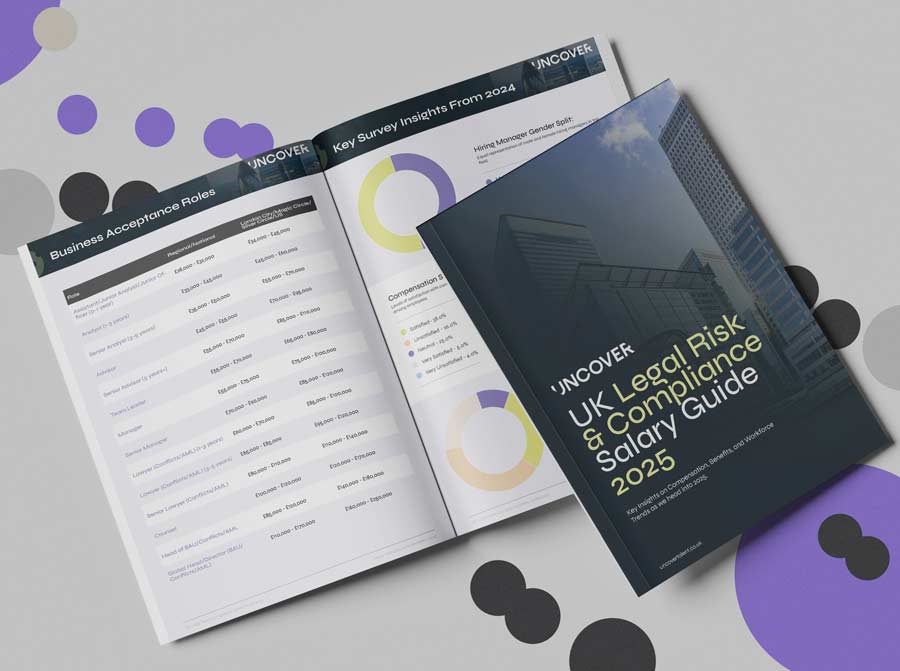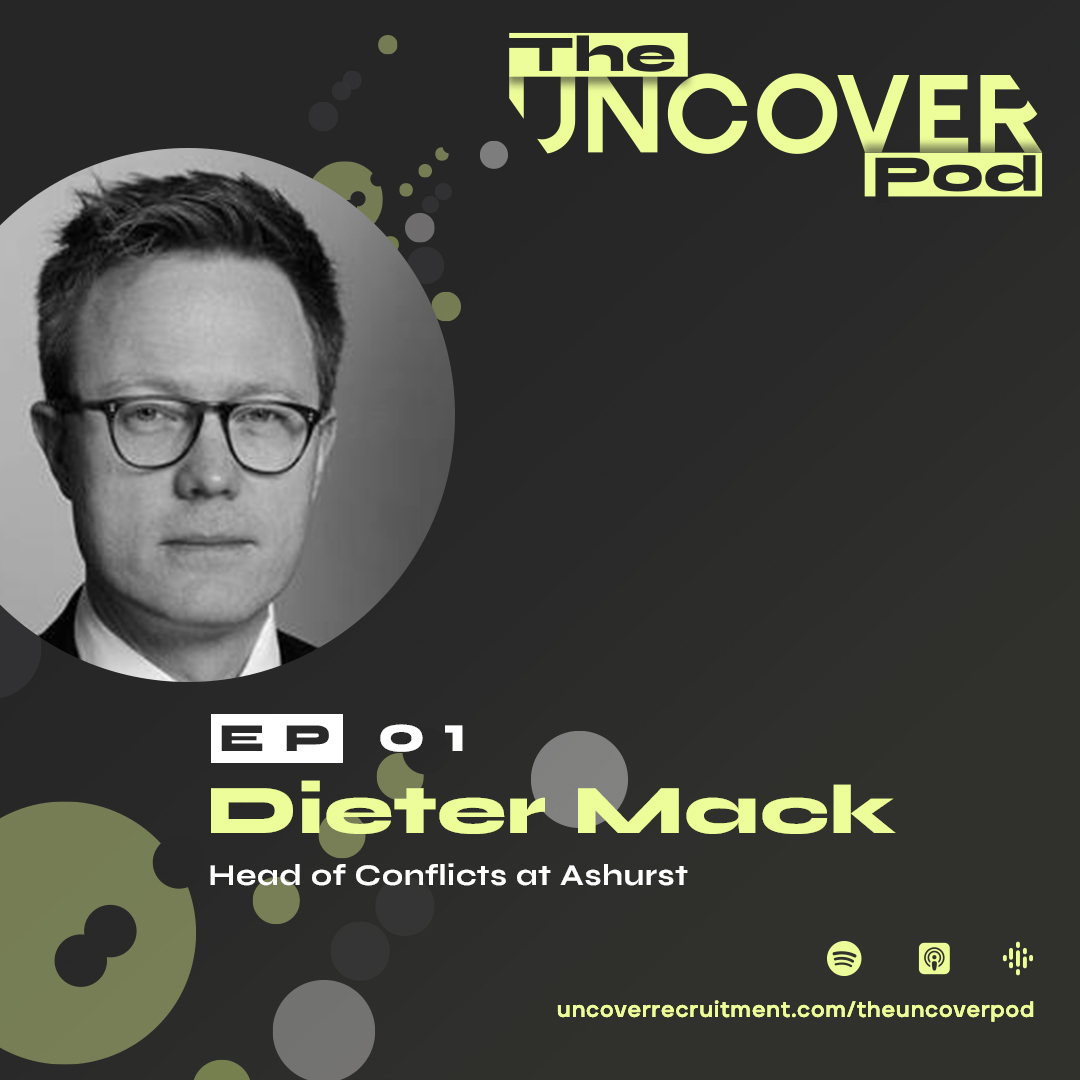In the Legal Risk & Compliance sector, there are plenty of ways for junior candidates to get ahead. On Episode 10 of The UNCOVER Pod I spoke with Sanchia Wheeler, the Head of Compliance at Gowling WLG, about what makes junior candidates stand out from their colleagues or competitors at interviews. Read on to learn how you can set yourself apart in the Legal Risk & Compliance industry.
What, in your opinion, is the most important attribute candidates need to demonstrate and why?
“Versatility. You can see that from the breadth of experience someone has at a more junior age, rather than the depth of experience. It’s about being exposed to lots of different areas, because typically speaking, risk and compliance isn’t something you study when you’re doing your degree or attending law school. People find their way into compliance based on the work that they have done. Having varied work experience in different areas of law really helps junior people to understand their role in a different way. They’ll understand that dealing with a complaint actually impacts another matter, because they’ll have a much broader perspective and see how things interlink.
It’s not just about the work that you do day-to-day in the office. It’s about getting that experience outside of work too. It’s always good to have your hand in other pies, because there’s so much experience that you can get. Even if it’s not specifically legal, sitting on a board, doing school governor work, sitting on the Diversity Committee or whatever else it may be, you can gain skills, experiences and knowledge from all kinds of activities. It shows your ability to be in different areas and do different things. For a Risk & Compliance lawyer that is the day to day of the job. One minute you’re looking at complaints, the next you’re dealing with a sanction related query, an anti money laundering related query, onboarding a complex client, or handling a massive data breach in the firm. You need to be able to make that switch in your mind.
The range of different laws you need to understand to advise your firm or organisation is huge. You also need to have an operational mindset that understands how to apply those laws to your organisation. How are you going to deal with a breach on the ground? How does that law apply to my organisation? My advice for junior members of staff who are working towards that position is to get stuck in, ask lots of questions, put your hand up for projects, get involved in stuff, and get to know your organisation better. Legal Risk & Compliance is one of the teams within any organisation who has so much exposure to everybody across the business. By putting your hand up for projects and sitting in different meetings you get insights into how officers interact in those meetings or how they think, and that’s where you get all of that breadth of experience from.”
What should candidates be doing on a day to day basis to separate themselves from the rest of the pack?
“It’s all about that personal brand. That’s what really sets people apart from the pack right at the beginning. Something I was told a long time ago is that people are human, and you’re allowed to make a mistake. People do recognise – especially when you’re a junior person – that it’s a very different world when you’re on the ground when you are actually practising law from when you were at university with your head in your book. Making that theory work within your firm’s commercial and strategic objectives is difficult as well. So in terms of your personal brand, networking and getting yourself out there is a key skill. There are so many different forums that you can attend, even within the risk and compliance space. It’s helpful to learn from other people who are also grappling with an issue. LinkedIn is absolutely amazing in terms of Information in one place, and from so many people across the world. There’s always one little gem you can get from somebody else that you might not have thought of before.
Curiosity is also important. I think that’s a perfect word, because the more curious you are, the more you learn. If you can learn and then share that information, that’s something sets people apart at the junior stage as well. They’re not only doing it for themselves and learning because they’re curious, but they’re coming back to their team and improving the people around them too. It just shows that you can take your knowledge forward and bring new ideas to your team. I like to call it ‘leadership thought’, which is not just thinking about today in my own job and my own little bubble, but what I can do to improve the firm, whether it’s our processes, individual teams or ways of thinking. That’s what I really like to see from juniors.”
To learn more from Sanchia, tune into Episode 10 of The UNCOVER Pod here.




